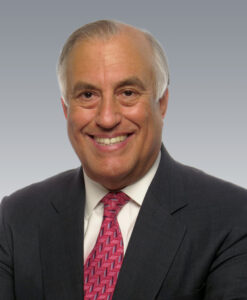If you are experiencing symptoms like chest pain, shortness of breath, dizziness, fainting, or fast or irregular heartbeats, the doctor may recommend an EKG to check if they are linked with heart disease. Dr. Steven Reisman at the New York Cardiac Diagnostic Center performs an EKG to monitor the health of patients who have been diagnosed with heart problems and suffer from the effects of certain medications on the heart. With an accurate assessment of your condition, he will offer positive solutions to help you with your complaints.
When Is an EKG Used?
The 12-lead electrocardiogram (EKG), also known as the ECG is among the most basic diagnostic tools used for screening and evaluating cardiac abnormalities. It is a non-invasive test that helps doctors get information about a patient’s heart health and diagnose conditions related to the heart’s electrical activity.
Doctors ask their patients to go for a 12-lead EKG for several reasons. They include:

- Identifying the cause of an arrhythmia;
- Checking for evidence of high-risk arrhythmia syndromes such as Long-QT and Brugada Syndrome;
- Investigating a history of syncope or palpitations;
- Monitoring effects of a certain medication;
- Determining evidence for myocardial infarction or heart attack;
- Investigating any evidence of coronary artery blockages;
- Determining normal pacemaker or ICD functioning.
A standard surface EKG is recorded with the help of electrodes or sticky patches. These patches are placed on the body surface, particularly on the chest and the extremities. The electrodes wires are connected to the EKG machine with recordings from 12 different locations on the body surface.
Some other problems diagnosed by an EKG scan include:
- Myocardial ischemia;
- Cardiomyopathy;
- Pericarditis;
- Electrolyte disturbances.
What Happens During the EKG?
- The test electrodes are attached to your arms, legs, and chest;
- The electrodes are sticky patches that are applied with a gel to your skin;
- These electrodes are connected with wires on one end to a monitor;
- They detect the electrical currents of your heart;
- They record the electrical signals that make the heartbeat;
- A computer records the information and displays it as waves.
The cardiologist looks for a consistent, even heart rhythm and a heart rate between 60 to 100 beats a minute. An electrocardiogram is a safe and relatively swift procedure. There is no risk of electrical shock during the test as the electrodes do not produce electricity. The electrodes only record the electrical activity of your heart.
Read more: What Can an EKG Detect?
Steven Reisman recommends an EKG for patients at risk of heart disease because of family history, high blood pressure, diabetes, obesity, and other factors. A specially trained doctor in reading the EKG recordings, Dr. Steven Reisman will interpret the results and provide the most accurate assessment regarding your heart health. He will come up with personalized treatment plans based on the diagnosed condition to help you live a better quality of life.

Dr. Steven Reisman is an internationally recognized cardiologist and heart specialist. He is a member of the American College of Cardiology, American Heart Association, and a founding member of the American Society of Nuclear Cardiology.
Dr. Reisman has presented original research findings for the early detection of "high risk" heart disease and severe coronary artery disease at the annual meetings of both the American College of Cardiology and the American Heart Association. Dr. Reisman was part of a group of doctors with the Food and Drug Administration who evaluated the dipyridamole thallium testing technique before the FDA approved it.
Dr. Steven Reisman's academic appointments include Assistant Professor of Medicine at the University of California and Assistant Professor at SUNY. Hospital appointments include the Director of Nuclear Cardiology at the Long Island College Hospital.



